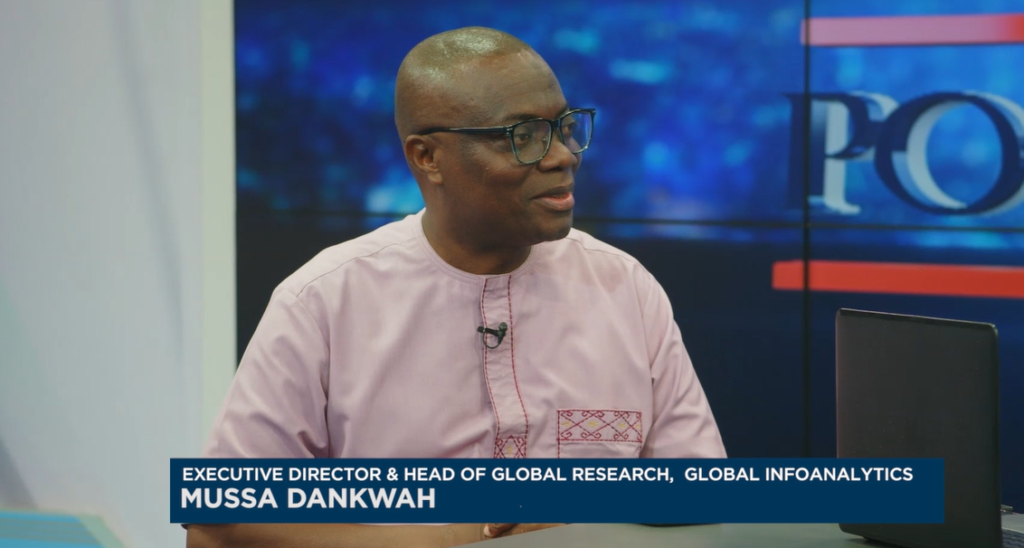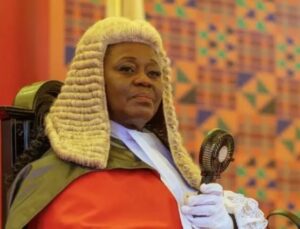A new poll conducted by Global InfoAnalytics has revealed that a majority of Ghanaians support the removal of Chief Justice Gertrude Torkornoo, despite not knowing the specific allegations leveled against her.
Speaking on Channel One TV on April 19, Executive Director Mussa Dankwah explained that the public sentiment does not stem from clear evidence of misconduct but rather from a broader perception of controversy surrounding the Chief Justice’s role.
“We asked voters whether they support the process to remove [the Chief Justice], even though we have not seen any evidence of impropriety,” said Dankwah.

Poll Breakdown
According to the poll results:
- 52% support her removal
- 20% oppose it
- 18% remain neutral
- 10% have no opinion
These numbers suggest that a significant portion of the population is dissatisfied with the judiciary’s leadership, regardless of legal clarity.
Context: A Constitutional Storm
This development comes at a tense moment in Ghana’s political landscape. President John Dramani Mahama has triggered a constitutional process with three separate petitions calling for Chief Justice Torkornoo’s removal. These petitions are now under review by the Council of State, as outlined in Article 146 of the 1992 Constitution.
Critics, however, argue that pushing for the removal of a constitutional officeholder without substantial proof threatens the principles of due process and judicial independence.

Public Sentiment or Political Frustration?
Dankwah noted that the findings likely reflect general political dissatisfaction, not necessarily a well-informed call for judicial reform.
“It appears the support is more about perception and less about the rule of law,” he stated.
Analysts warn that such trends could weaken public engagement with constitutional matters and erode confidence in state institutions if not addressed with transparency and education.
Looking Ahead
As the Council of State deliberates on the petitions, Ghana finds itself at a crossroads between popular sentiment and constitutional rigor. Whether or not the Chief Justice remains in office, this episode underscores a growing rift between public perception and legal reasoning—a gap that could have long-term implications for the country’s democracy.

